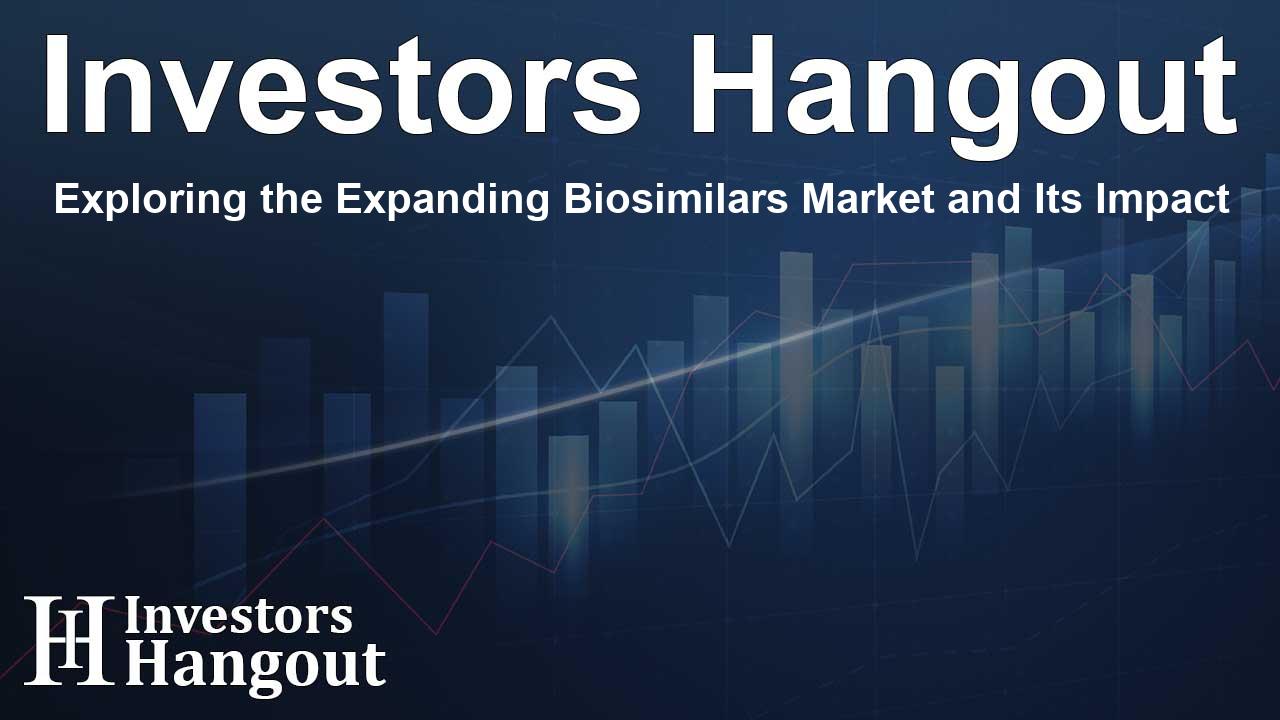Exploring the Expanding Biosimilars Market and Its Impact

Biosimilars Market Overview
The global Biosimilars Market is projected to grow from US$32.75 billion in 2024 to an impressive US$72.29 billion by 2035, reflecting a robust CAGR of 7.5%. This positive growth trajectory is attributed to several factors, including the increasing number of regulatory approvals for biosimilar products, the expiration of patents for key biologics, and the rising prevalence of chronic diseases that necessitate affordable treatment options.
Key Drivers of Growth
Healthcare systems globally face pressure to contain costs, which has accelerated the development and commercialization of biosimilars. As global healthcare demands rise, the eagerness of pharmaceutical companies to collaborate on research and development initiatives has also intensified. A notable instance includes the upcoming launch of a biosimilar version of the popular GLP-1 agonist Semaglutide, expected to significantly boost the global biosimilars market share around 25% by 2035. Nevertheless, challenges linked to the manufacturing processes of biosimilars remain a potential hindrance to market expansion during this period.
Oncology and Biosimilars
Among therapeutic areas, oncology stands out as the primary focus for biosimilars, driven by the global burden of cancer and the prohibitive costs associated with biologic therapies. Biosimilars provide cost-effective alternatives to reference biologics, making critical treatments more accessible for patients. The primary biosimilars for oncology include trastuzumab, bevacizumab, and rituximab, among others, with ongoing regulatory approvals further supporting the growth of this vital market segment.
Importance of R&D in Oncology
Investment in R&D within oncology is pivotal, as biosimilars emerge as strategic solutions for healthcare providers striving for cost-effective treatments. Risk-sharing partnerships enhance the accessibility of biosimilars, especially as patent expirations trigger greater market competition, leading to reduced prices and fostering more pharmaceutical interest in developing monoclonal antibodies (mAbs).
Geographical Insights
Europe has emerged as a leading contributor to the biosimilars market due to favorable government policies supporting biosimilar adoption, coupled with significant investments in R&D. Countries like France, Germany, Italy, and the UK have played substantial roles, with the European Medicines Agency approving numerous biosimilars across various therapeutic classes, including insulin and TNF inhibitors. These approvals have greatly enhanced patient access and decreased treatment costs.
Latest Developments in Europe
A significant milestone was achieved when the European Commission approved a biosimilar of ustekinumab in early 2025, reinforcing Europe's commitment to improving access to biologic therapies. This decisive action underscores the region's leadership in the global biosimilars landscape amidst increasing regulatory approvals.
Market Players and Collaborations
Key players in the biosimilars market include Sandoz Group AG, Pfizer Inc., and Amgen Inc., among others. Their strategic focus on launching first-to-market biosimilar products showcases their commitment to addressing market needs swiftly. For instance, Sandoz has recently partnered with innovative firms to develop and manufacture multiple biosimilars, thus enriching their pipeline with new product offerings.
Significant Partnerships and Products
In 2025, Biocon formed a partnership with Civica, Inc. to develop insulin Aspart for the U.S. market, highlighting the collaborative efforts needed to bring effective biosimilars to the broader marketplace. Similarly, Dr. Reddy's Laboratories' collaboration with Shanghai Henlius Biotech aims to commercialize HLX15, further emphasizing the international cooperation necessary for market success.
Future Outlook
Looking ahead, the biosimilars market holds a promising outlook, bolstered by continued regulatory support and an increasing number of approved products. As more companies invest in biosimilar development and seek innovative solutions to complex healthcare challenges, the market is poised for significant growth. Factors such as patient affordability, accessibility, and the continuous emergence of competitive pricing will likely determine the future landscape of biosimilars.
Frequently Asked Questions
What is the projected value of the biosimilars market?
The biosimilars market is projected to reach US$72.29 billion by 2035, growing from US$32.75 billion in 2024.
What factors are driving the growth of biosimilars?
The growth of biosimilars is driven by regulatory approvals, patent expirations of major biologics, and the rising need for affordable treatments for chronic diseases.
Which therapeutic area leads in biosimilars?
Oncology currently leads the biosimilars market due to high demand for effective and affordable cancer treatments.
What role does Europe play in biosimilars?
Europe is a key player in the biosimilars market, with supportive government policies and numerous approved products enhancing patient access and reducing costs.
Who are the major companies involved in biosimilars?
Major companies in the biosimilars market include Sandoz Group AG, Pfizer Inc., and Amgen Inc., all actively developing a range of biosimilar products.
About The Author
Contact Ryan Hughes privately here. Or send an email with ATTN: Ryan Hughes as the subject to contact@investorshangout.com.
About Investors Hangout
Investors Hangout is a leading online stock forum for financial discussion and learning, offering a wide range of free tools and resources. It draws in traders of all levels, who exchange market knowledge, investigate trading tactics, and keep an eye on industry developments in real time. Featuring financial articles, stock message boards, quotes, charts, company profiles, and live news updates. Through cooperative learning and a wealth of informational resources, it helps users from novices creating their first portfolios to experts honing their techniques. Join Investors Hangout today: https://investorshangout.com/
The content of this article is based on factual, publicly available information and does not represent legal, financial, or investment advice. Investors Hangout does not offer financial advice, and the author is not a licensed financial advisor. Consult a qualified advisor before making any financial or investment decisions based on this article. This article should not be considered advice to purchase, sell, or hold any securities or other investments. If any of the material provided here is inaccurate, please contact us for corrections.
